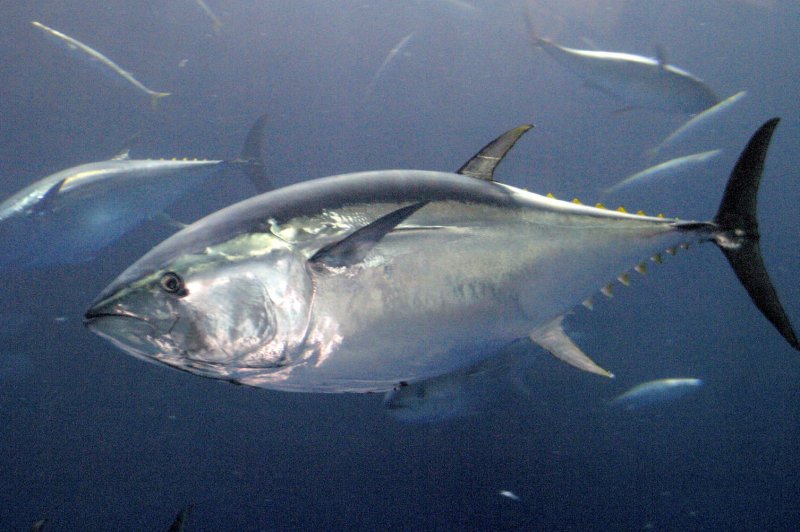Blue fin tuna are one of several species whose geographic range is declining faster than its population and could make it more susceptible to extinction. Photo by rlw/Monterey Bay Aquarium/Randy Wilder/UPI |
License Photo
March 28 (UPI) -- Even as the population of an endangered species declines more broadly, the species can become locally abundant. But as new research shows, locally abundant but geographically isolated endangered species are at significant risk of extinction.
Endangered species are most vulnerable to man-made pressures when they're backed into a corner. When isolated, species become easy targets for hunters and fishermen.
"We often think of species like elephants and bluefin tunas as being overharvested because of their high market value," lead study author Matt Burgess, a postdoctoral researcher at the University of California, Santa Barbara, said in a news release. "Our results suggest that we should also be paying attention to their range contractions. In fact, range contraction can put a species at risk of overharvesting regardless of how high its market value is."
Burgess and his colleagues developed a model to identify isolated species that could be profitably harvested to extinction.
As the findings revealed, the geographical ranges of Bengal tigers, Asian elephants and Atlantic and Pacific bluefin tunas are shrinking faster than their populations, making them especially vulnerable to extinction.
The schooling behavior of fish makes species like tuna more likely to retreat into smaller geographical confines as their numbers decline. In other words, their survival instinct makes them even more vulnerable.
Researchers say their study, published this week in the journal PNAS, is especially relevant, as climate change continues to shrink the ranges of a variety of species.
"It's precisely those overharvested species that are least able to cope with climate change," said study co-author Malin Pinsky, an assistant professor at Rutgers University. "We now know that one of the best ways to help animals survive climate change is to eliminate over-harvesting."















